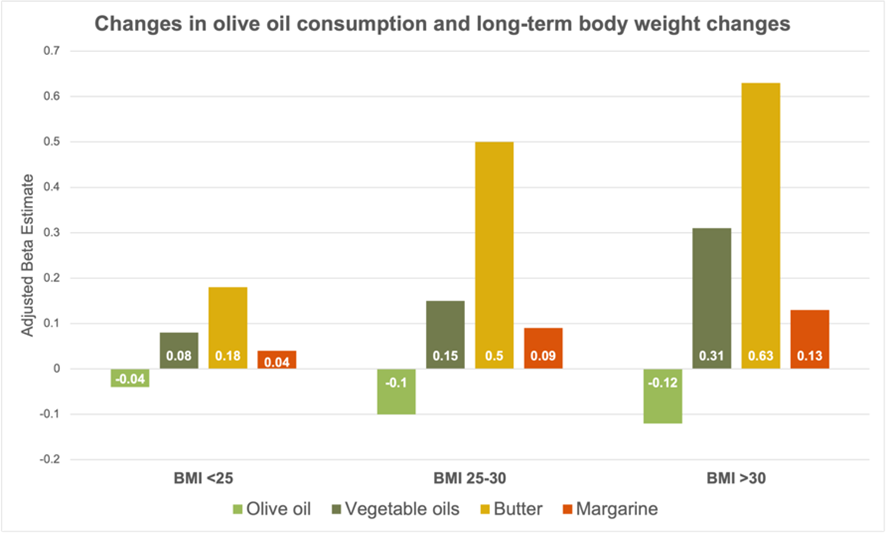A recent study published in The American Journal of Clinical Nutrition confirms what Mediterranean cultures have known for centuries: olive oil is not just heart-healthy—it may also help in the prevention and treatment of obesity.
Researchers from Harvard and other leading institutions followed over 121,000 men and women in the United States for up to 24 years to examine how changes in fat consumption impacted long-term body weight. The results were compelling. Participants who increased their olive oil intake experienced less weight gain than those who consumed more butter, margarine, or vegetable oils.
“Each additional half-tablespoon of olive oil per day was associated with 0.09 kg less weight gain,” the authors wrote. In contrast, similar increases in butter, margarine, or other vegetable oils were linked to greater weight gain.
Why Olive Oil Supports a Healthy Weight
Olive oil is rich in monounsaturated fats—specifically oleic acid—which promote metabolic health, satiety, and fat oxidation. These properties may help explain why olive oil doesn’t lead to the same weight gain as other fats.
Olive oil is also a source of antioxidants and polyphenols, which reduce inflammation and improve insulin sensitivity—key factors in weight regulation. Notably, even though olive oil is energy-dense (i.e., relatively high in calories per serving), its consumption was linked with better outcomes in weight control, showing that all calories are not created equal.

Source: Changes in olive oil consumption and long-term body weight changes in 3 United States prospective cohort studies. Guasch-Ferré, Marta et al. The American Journal of Clinical Nutrition.
Substituting Olive Oil for Other Fats Pays Off
The Harvard study included substitution analyses showing that replacing butter, margarine, or other vegetable oils with olive oil was consistently associated with less weight gain. This held true across age groups, BMI categories, and dietary patterns, including those without a traditional Mediterranean background.
These results are aligned with findings from previous clinical trials, such as the PREDIMED study , which found no weight gain from high-olive-oil diets, even when calories weren’t restricted.
One factor that may explain why olive oil is associated with less weight gain than other fats is its low trans fat content. Extra virgin olive oil (EVOO) contains virtually no trans fats, while refined olive oils contain only 0.5%. In contrast, seed oils such as canola, soybean or corn oil can contain up to 7 times more trans fats than even refined olive oil.
Although all vegetable oils now can claim to be “trans fat free,” U.S. labeling laws allow products with less than 0.5 grams of trans fat per serving to be labeled as 0 grams, meaning that regular consumption of products made with vegetable oils can still result in meaningful trans fat intake.
Studies have linked trans fat consumption not only to increased cardiovascular risk but also to greater abdominal fat deposition and overall weight gain—even when calorie intake is held constant. This highlights a key advantage of olive oil: its fat profile not only supports metabolic health but also avoids the hidden risks posed by trans fats in other cooking oils and spreads
Practical Implications for Public Health
These findings reinforce the importance of fat quality over fat quantity. Rather than fearing all fats, consumers and policymakers should focus on promoting healthy fats like olive oil, especially in the fight against obesity and related chronic diseases.
"Switching from butter to olive oil is a simple change with big potential impact,” said the study’s authors, who emphasized that olive oil can help maintain a healthy weight even in non-Mediterranean populations.
Citation:
Guasch-Ferré, M., Pacheco, L.S., Tessier, A.-J., et al. (2025). Changes in olive oil consumption and long-term body weight changes in 3 United States prospective cohort studies. The American Journal of Clinical Nutrition, 121(5), 1149–1156. https://doi.org/10.1016/j.ajcnut.2025.02.012:contentReference[oaicite:1]{index=1}





